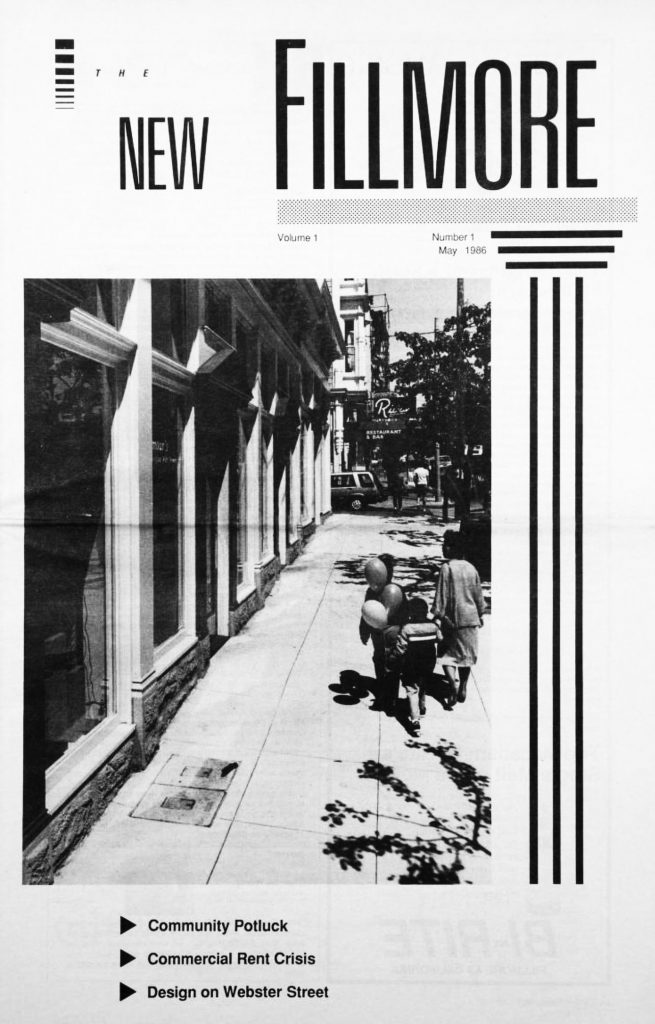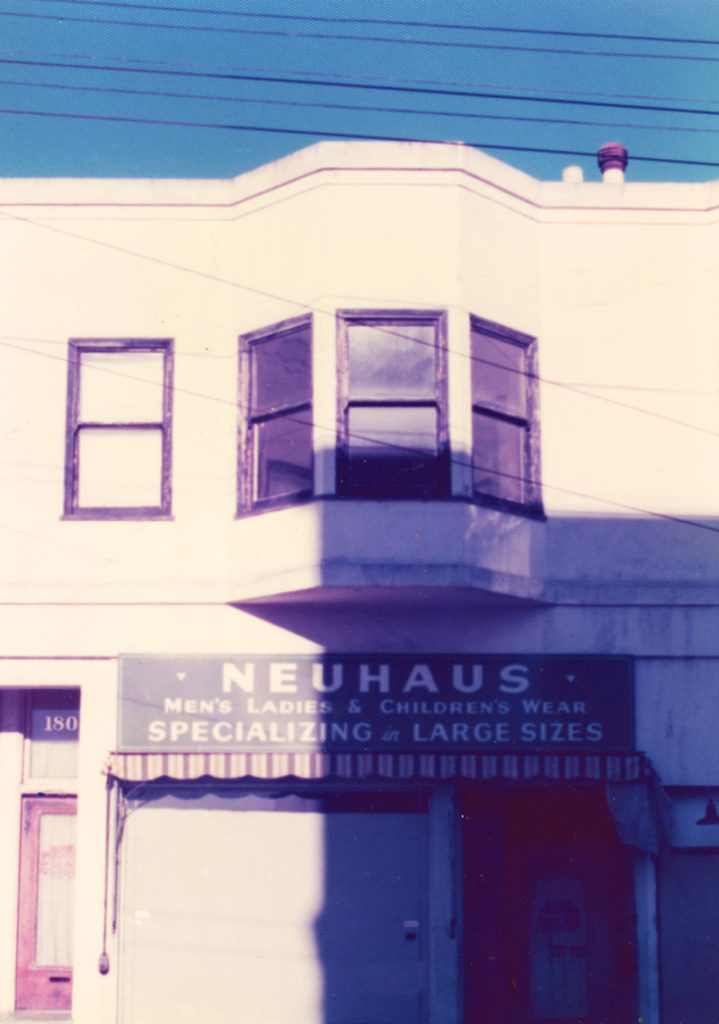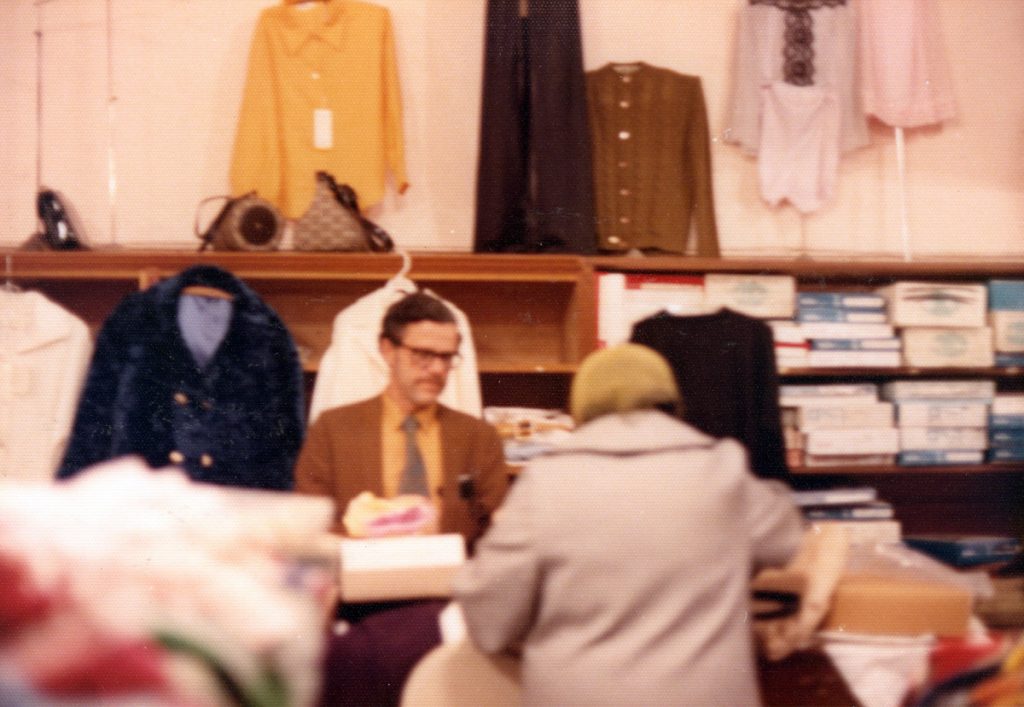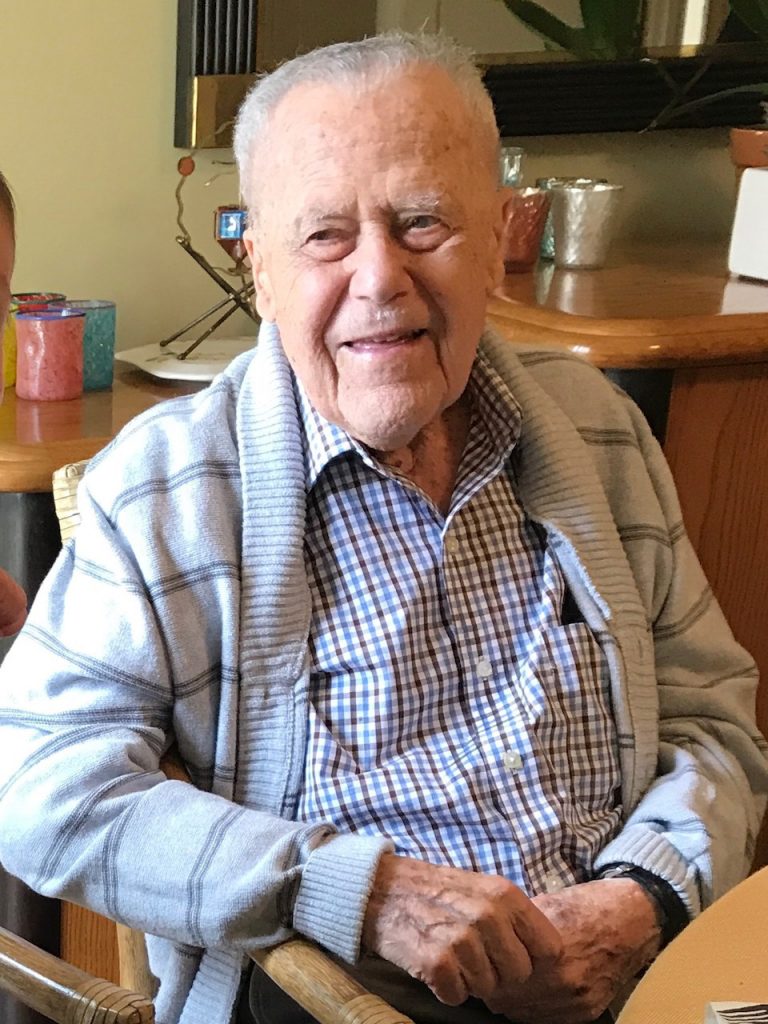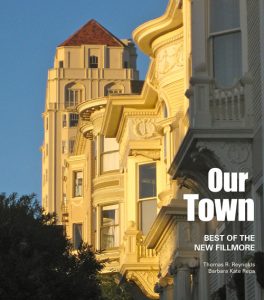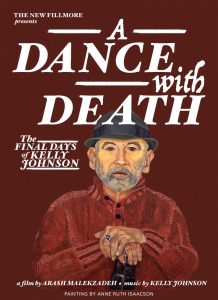By HOWARD FREEDMAN
At age 95, neighborhood resident Jerry Neuhaus is one of the last surviving business owners who operated in the Fillmore District before it was demolished by the Redevelopment Agency in the 1960s. And he’s still nearby — only four blocks from the clothing store he and his family ran for decades at Fillmore and Sutter.
Neuhaus was born in 1922 in Spangenberg, a small town in central Germany, where his father ran a department store. As conditions deteriorated rapidly for Jews in Hitler’s Germany, an aunt and uncle who had earlier come to San Francisco urged his family to join them here.
Neuhaus managed to leave Germany with his mother, father and sister in 1937, bringing along a sacred Torah scroll. Jews who were able to escape could bring little money with them. But some people in the know suggested they bring Leica cameras, which were in high demand in the United States.
Once in San Francisco, they were able to sell the cameras and use the proceeds to get established. His uncle helped Jerry’s father start a clothing store, Neuhaus Brothers, at 1806 Fillmore, just north of the corner of Sutter Street.
The Fillmore District was the hub of San Francisco’s Jewish community at that time, anchored by synagogues and institutions such as Diller’s kosher restaurant and the Ukraine Bakery. The area was dominated by families that had immigrated from Poland and Russia at the turn of the 20th century.
Neuhaus congregated instead with other recent German Jewish immigrants, who lived under remarkably different circumstances than most San Franciscans. Non-naturalized Germans — including those who had recently escaped to save their lives — in 1941 were classified as “enemy aliens” and were subject to restrictions including an 8 p.m. curfew. Neuhaus was part of a club with around 50 other young German Jewish emigres who would gather and socialize together. Since they were unable to go out in the evenings, they would have Sunday afternoon dances. They called themselves the Afternoon Night Owls.
After working in a machine shop run by the Department of War, Neuhaus was eventually drafted into the army. He served first in the Pacific and later on a base in Texas, where he trained new soldiers. When he returned to San Francisco from military service in 1945, he began taking business courses at City College. Soon he was running the family’s store.
Neuhaus Brothers had a great location, within blocks of the California Street cable car, the Geary streetcar and a number of electric trolley bus lines, including the 22, which brought customers to Fillmore from the Mission and Marina Districts. But competition was stiff, with six clothing stores operating within several blocks.
“Business was not that good at the time,” Neuhaus recalls. “So I told my father, we’ve got to do something different. I came up with the idea of selling women’s large size clothes. I put out a big sign saying Specializing in Large Sizes.”
With no other shop in San Francisco at the time devoted to selling plus sizes for women, the store benefited from its niche. Customers came from all over the Bay Area. And Neuhaus would travel to New York twice a year to commission clothing for the shop.
Neuhaus also extended credit to many of the customers, which won him their lasting loyalty. He says his only truly negative experience was being held up at gunpoint on the day before Christmas one year. The gunman got away with $2,000.
The business continued until the city’s Redevelopment Agency notified Neuhaus that his store was part of the area that was slated for demolition during the second phase of the massive redevelopment project that was drastically changing the Western Addition. Neuhaus Brothers closed in 1970, and the city razed the block of Fillmore Street it had occupied shortly afterward. The Amelia condominiums and shops are there today.
Neuhaus used the money he received as compensation from the Redevelopment Agency to go into real estate, primarily in the Sunset and Richmond Districts.
Neuhaus was married for more than 66 years to Renee Cohn, another German refugee, from Hamburg, who came to San Francisco in 1939. They both attended Lowell High School. The two first met as high school students at a holiday celebration at Congregation Beth Israel, the synagogue on Geary that once stood next door to the Fillmore Auditorium on what is now the site of the post office.
They were married in 1947 at Congregation Keneseth Israel, an Orthodox synagogue then at Webster and Golden Gate. The couple raised three daughters, Sandy, Debbie and Nancy. Eventually in later life they moved to Rhoda Goldman Plaza, the senior community at Post and Scott where Jerry still lives. Renee died in 2014.
These days, Neuhaus enjoys taking short walks in the neighborhood, impressed that it has become more upscale than during his days in business. And he occasionally comes across people who remember the old days.
“Just a week ago,” he says, “a guy came by here, and said: ‘You’re Mr. Neuhaus. When I was a little boy, my mother was a big woman, and we lived far away, but we used to come to your store every month. My mother always enjoyed it.’ ”
Neuhaus says he feels fortunate he had his business in a different era. “Retail business is a thing of the past,” he says. “So many people are buying on the Internet.” But he hasn’t given up on his trade. “I do think neighborhood stores still have a chance,” he says.
Still lively and intellectually active after nearly a century of life, he has some advice to offer: “The main thing is to stay healthy.”
Research assistance provided by Burt Meyer and Randall Heilbrunn.
Filed under: Locals, Neighborhood History



